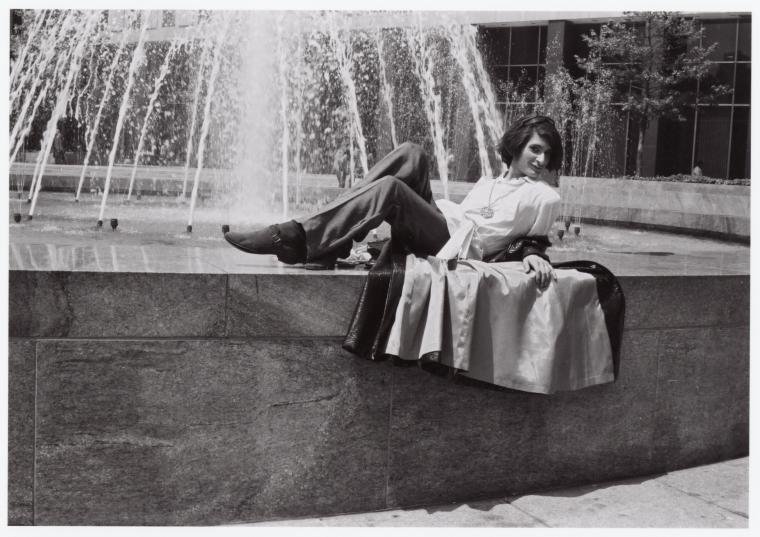The late transgender activists Marsha P. Johnson and Sylvia Rivera will be forever celebrated in the city they called home.
New York City Mayor Bill de Blasio announced on Thursday plans to commemorate the pair with a monument, which the city says will be one of the first in the world dedicated to transgender women.
The proposed location of the monument is the Ruth Wittenberg Triangle, which is a short distance from the Stonewall Inn, the historic site of riots that took place on June 28, 1969, nearly 50 years ago. The city hopes to unveil the monument by 2021. It will reportedly cost around $750,000, which will be taken from the $10 million allocated for new public artworks.
Johnson and Rivera were key figures in the Stonewall Riots, which resulted from a police raid on the establishment.
The raid sparked a violent clash between patrons, residents of the neighborhood, and law enforcement that lasted six days outside the bar in New York City’s West Village neighborhood. The riots marked a major turning point in the gay rights movement and led to the birth of similar movements across the United States and around the world.
While the city installed a set of statues honoring the movement in nearby Christopher Park decades later, the four abstract statues of two men and women are nameless and simply painted white. The new monument hopes to bring greater representation to the leaders of the movement.
 Marsha P. Johnson at gay rights rally at City Hall in New York.
Marsha P. Johnson at gay rights rally at City Hall in New York.
Marsha P. Johnson at gay rights rally at City Hall in New York.
“The LGBTQ movement was portrayed very much as a white, gay male movement,” Chirlane McCray, New York City’s first lady, told the New York Times. “This monument counters that trend of whitewashing the history.”
McCray added that she believes it’s important for the new monument to have a “name and a face.”
“For so long, the role that people like Marsha played was dismissed,” Marisa Richmond, a trans scholar who teaches history at Middle Tennessee State University, told USA Today. “The world is more open, welcoming and inclusive than it was 50 years ago. Her efforts helped make that happen.”
Johnson, who was black, played a pivotal role in the LGBTQ rights and HIV/AIDS awareness movements during the 1960s. Born in Elizabeth, New Jersey, in 1945, Johnson moved to New York City after graduating high school and was a drag performer. She was homeless for much of her life and died in 1992. Police recovered her body from the Hudson River and ruled the death a suicide, but many have questioned the determination.
 Sylvia Rivera in front of fountain in New York.
Sylvia Rivera in front of fountain in New York.
Sylvia Rivera in front of fountain in New York.
Rivera, who was also a drag performer, was born in 1951 to immigrant parents from Puerto Rico, and started living on her own at the age of 11. She also experienced homelessness.
Together, Johnson and Rivera founded Street Transvestite Action Revolutionaries (STAR), a group committed to helping homeless transgender youth in New York City.